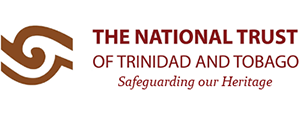By Karishma Nanhu, Heritage Preservation and Research Officer
Imagine a festival with lively music where a crowd of people doused in bright colourful liquids and powders are enjoying themselves, you might be thinking of a fete—like Soaka. But long before there was Soaka, there was Phagwa. Here are a few things that you may not know about Phagwa:
- Phagwa, also known as Holi, was introduced to the Caribbean by Indian indentured labourers. This year, Phagwa takes place on March 8th, 2023, but the actual celebrations will take place on Sunday March 12th. Holi marks the celebration of the start of spring and good harvests and it usually takes place in March or April.

Picture by Cleon Henry
- Phagwa is a joyful occasion. Although it has Hindu significance, all are welcome to participate in dousing each other with coloured powder and liquid called gulal or abeer. Recycled plastic bottles are popularly used to spray abeer on others. The traditional vessel for spraying abeer is called a pichakaree. Nowadays these are made from pvc pipes and plastic. Even water guns can be used for spraying abeer.
- You do not need a special invitation to attend Phagwa; you can simply go to any of the Phagwa celebrations around the country. The atmosphere is very joyful, there is singing and dancing in celebration of the coming year. The National Phagwa Council of Trinidad & Tobago will host its celebrations at the Aranguez Savannah, which is a popular spot. If you attend, a change of clothes or a towel is necessary, even if you do not intend to participate!

Phagwa at home during COVID-19 restrictions
Picture by Kavita Nanhu
- The traditional type of songs sung for Phagwa is called Chowtal. The music is lively and Chowtal groups are usually accompanied by dancers. These reflect the Bhojpuri dialect which was spoken in Trinidad by the indentured Indians (variations are spoken in the Indian diaspora). The musical instruments used include the dholak, or drum and the manjeera, which is a percussive instrument.
- There are several religious explanations for Phagwa. One explanation comes from the Bhagavata Purana, a Hindu religious text. It is based on the story of the downfall of the king Hiranyakashipu, who was once a good man but became a tyrant, as well as the death of his sister Holika. Holika died while doing the evil deed of trying to kill her nephew, Prahalad, who defied his father Hiranyakashipu and refused to worship him. In Trinidad, aspects of this story are incorporated into Phagwa celebrations and an effigy of Holika is burnt as a symbolic representation of cleansing.
Another explanation is that Phagwa commemorates the divine love between Radha and lord Krishna and in some parts of India the celebrations last 16 days. Phagwa in Trinidad and Tobago is a religious occasion, and no alcohol is served. This is not the case in India however.
Sources:
Aspiring Minds Foundation. Phagwa or Holi. https://www.aspiringmindstandt.com/phagwa#:~:text=The%20observance%20of%20Phagwa%2C%20or,months%20of%20March%20and%20April.
Dyal, Pat. (2019). Phagwah and its meaning. Guyana Chronicle, the Nation’s Paper. https://guyanachronicle.com/2019/03/24/phagwah-and-its-meaning/
Phagwah in Guyana in 2023. (2023). https://www.officeholidays.com/holidays/guyana/holi
The Times of India. (2021). Holi 2021 Legend: Lord Krishna playing Holi with Radharani. https://timesofindia.indiatimes.com/religion/festivals/holi-2021-legend-lord-krishna-playing-holi-with-radharani/articleshow/81702194.cms

